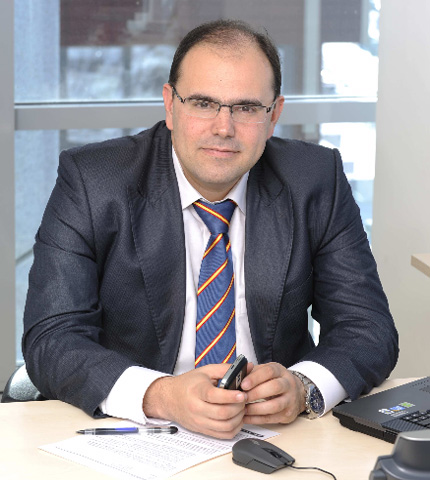According to data of the World Bank, 75% of the global gross domestic product is formed in the cities. Forecasts show that by 2030 the urban areas in the developing countries will increase threefold. That process will be considerably slower in Bulgaria, yet this country would make no exception to that trend. The concentration of people in the urban areas would boost consumption of water, electricity and raw materials. The level of harmful gas emissions is expected to rise. The cities would produce more waste and pollution will grow. Is there a way to manage that process? How representatives of the business, science and the authorities imagine the future of our cities? Those questions were discussed at the Green Cities Conference organized at the initiative of local business.
According to the participants, the state initiative for centralized and digital public services was a very good one. One of the cabinet's priorities regarded the introduction of E-government. Thus, the level of CO2 emissions would be reduced. The business participating in the so-called Green Circle pins its hopes on the new technologies to reduce harmful gas emissions and help nature conservation.
Many positive and quick changes related to mobile connectivity have occurred in Bulgaria, although we do not pay enough attention to them, Yasen Guev, Director at one of Bulgarian telecommunication companies and Chairman of the Bulgarian Green Circle said. In his words, the fact that the draft bill of the  Telecommunications Act has already been discussed by the Bulgarian MPs is very encouraging. The new act will allow ordinary people to have quick and easy access to those technologies. More from Yasen Guev:
Telecommunications Act has already been discussed by the Bulgarian MPs is very encouraging. The new act will allow ordinary people to have quick and easy access to those technologies. More from Yasen Guev:
“We are very close to the moment when all people will have access to the Internet through any type of device, regardless of their location. Several years ago we spoke about Home Connectivity and it is now a reality, although that technology is still a bit expensive. We can do things we previously watched on movies only. For instance we can see who is ringing on our door bell though our phones. Owners of retail stores install security systems in their shops and can monitor constantly what happens there. People can buy heating devices with special software which enable them to control the device from a bigger distance. Connectivity has been turning into a basic service and a basic human necessity. The business services and the administrative services will be done through the mobile technologies in the future. “
In Yasen Guev's words, the multinational online transportation company Uber is a good example in that direction, because the license allowing that company to do business in a given country is what matters the most.
“The biggest risk is related to legislation, because such type of services always infringes someone's interest. The debate will be complicated, because the state has to decide what is right and what is wrong. However, one thing is clear - the topics related to information and mobile connectivity are of key significance, because they influence directly the lives of all people. ”
English version: Kostadin Atanasov
The topic of quality in preschool and school education is of great importance for Bulgaria, but there is no quality standard in the Pre-school and School Education Act. Its creation is a task of the Ministry of Science and Education..
For the 21st consecutive year, Simitli is hosting one of the largest masquerade festivals in Bulgaria. Originally a local entertainment, "Simitli - The Ancient Land of Kukeri" has become one of the most important kukeri events in the country. Over the..
Romania becomes the largest natural gas producer in the EU Romania was the largest natural gas producer in the EU in 2024 and in 2027 the country will double its production thanks to the Neptun Deep project. This was..
On 25 January 1935, Tsar Boris III signed the decree establishing the Bulgarian National Radio. The document, which officially marked the beginning of..
The Federation of European Carnival Cities has declared Pernik a global center of masquerade traditions. 16 years ago, Prenik was named the European..

+359 2 9336 661
